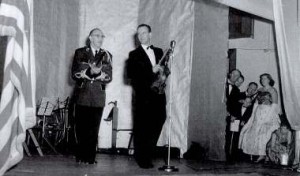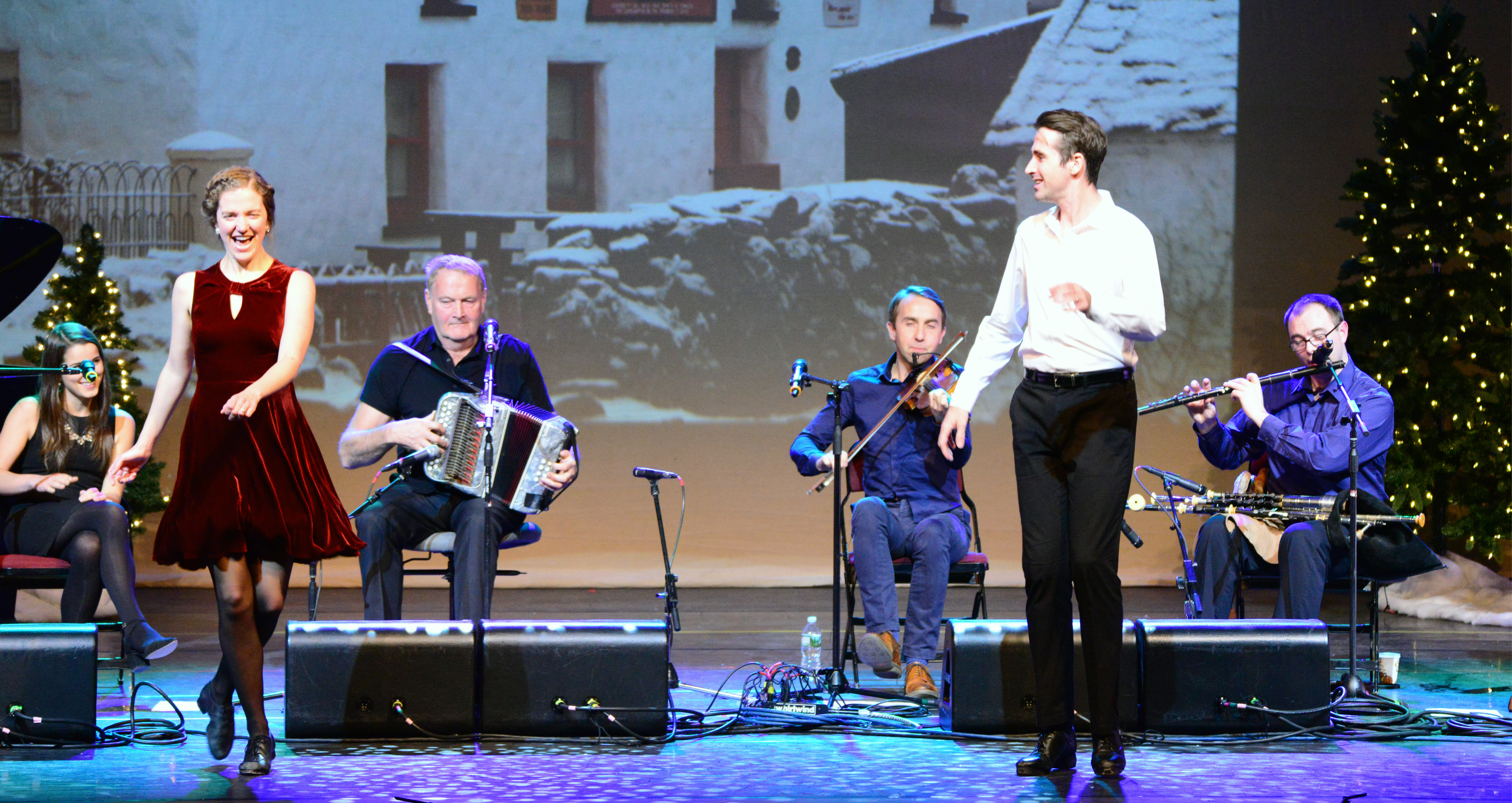After publishing the Ed Reavy Sr. song book in 1980, the famed composer’s sons, Joe and Ed Jr., sat down with him after a reception in his honor at Cheltenham High School, where a popular ceili band of the time, the Taproom Band, played some of the hundreds of tunes Reavy had written.
“We asked him if he could come up with 100 traditional Irish tunes that were good for listening and for dancing, some that were easy to play and others that were more difficult,” recalls Ed Reavy Jr.
It seemed like a logical request. The elder Reavy, now considered one of the most important composers of Irish traditional music, was known for his computer-like memory for songs. “We had people from all over the world come to Ed Reavy’s house, not to listen to his latest composition, but because he was the greatest man in the world to have in a session,” says Ed. “His musical recall was unbelievable. He would start on a tune, and you’d hear a musician sputter, ‘Ed, how did you bring that up? I haven’t played that since I was 16,’ and he’d say, ‘Oh, I play it every once in a while.’ There was never a point in the session if Ed Reavy was there that he couldn’t plug in a tune or a set of tunes. One would remind him of another, a sister tune or something from the same era. That would charm the musicians in the session and that’s why they flocked to Ed Reavy’s house.”
So it shouldn’t have been hard for the man from Cavan to produce 100 songs, even with all the parameters set by his sons. But two and a half months later, their father still hadn’t mentioned it. “I was working with him in his plumbing business at the time,” recalls Ed. “We were tearing out an old galvanized pipe in the home of one of his fiddler friends, and I asked him, ‘Dad, are you done with those 100 tunes?’ and he said, ‘No, I’m still working on it.’ I said, ‘Dad, a hundred tunes should be a piece of cake.’ And he said, ‘Eddie, you don’t understand. Five hundred tunes is a piece of cake. One hundred is not.’ He had to whittle down the 100 tunes we wanted from 500 tunes he had in his head. Amazing, and he was in his 70s at the time.”
Weeks later, he brought his sons a marble copybook with eleven pages, both sides, filled with tunes. “He threw the book down in front of me on the desk and said, ‘Here’s the cursed thing and I never want anything to do with it in the future!’ I told him, ‘put some of yours in there,’ tunes he loved, and he did include about 7 of his own songs. But the thing was driving him crazy.”
When Ed Reavy Sr. arrived in the US as a teenager in 1912, it’s hard to know how many songs he carried with him in his head. He settled in the part of West Philadelphia then known as Corktown, because of the many Irish immigrants who lived there. It was a serendipitous place for a musician to land because, no matter where in Ireland people came from—Mayo, Donegal, Cavan—there were the old traditional tunes to bind them and give them solace so far from home. St. Agatha’s Parish Hall is where the music lived and thrived, as well as in the local taverns, private clubs, and ubiquitous house parties.
Reavy may have been inspired early on, but he didn’t begin composing himself until the 1930s. Over 40 years, he became one of the most prolific creators of Irish traditional tunes, each one so uniquely handcrafted that defining an “Ed Reavy tune” is nearly impossible. “Louis Quinn, the famed promoter and fiddler, was once asked, ‘How can you tell an Ed Reavy tune,’” says Ed. “Well, he rubbed his chin like he did, and said, ‘That’s a loaded question. Let me put it this way, if a tune does not have a good melody, an original good melody, and if it doesn’t have rolls and runs and triplets and double stops that are actually part of the tune, not ornamentation, and it doesn’t play from the E to G string, it’s probably not an Ed Reavy tune.’”
If you’re a musician, you probably got that. But if you’re not, like me, that’s a little too “inside baseball.” So I asked Ed what he meant. “Always something new every time was what he was after,” he explained. “He often commented that the basic problem with Irish traditional music is that it’s played on the first two strings of the fiddle and none of his tunes played on just the first two strings of the fiddle. He felt strongly about that and it’s reflected in the tunes he composed. He composed in keys no one else composed in, and would sometimes change keys in the middle of a tune.”
In these modern times, when surveys reveal the greatest goals of American children is “fame and fortune,” you might think that Ed Reavy Sr. was a fortunate man. Though there’s generally little money in traditional music, he certainly experienced fame in his lifetime. His tunes were played in sessions all over the world, and his recordings—homemade and otherwise—aired on Irish radio programs both here and in Ireland, turning them quickly into standards.
But it didn’t much matter to Reavy. “He was very humble, he was so humble to the point that he was a pain in the ass,” laughs his son. “He was the kind of a guy who would stand in the back of the room and not blow his own horn. I would say, ‘For God’s sake, Dad. Let people know what you’ve done.’ And he would say, ‘Oh Eddie, you know that’s sinful.’ He was a very devout man, very devoted to his Catholic faith. He was really a living saint. And I would say, ‘Well, you’ve got a lot of sinful people composing garbage and pushing it on us.”And he would say, ‘Well, that’s true, Eddie, that’s true.’”
It was still impossible to compliment him. “I remember that he thought (Limerick-born fiddler and noted music teacher) Martin Mulvihill was a genius because he taught so many champions,” recalls Ed. “ Martin loved Dad’s composition, ‘Munster Grass,’ the hornpipe. He said it was the greatest hornpipe ever written. And Dad said, ‘That’s not true. Martin just says that because it suits his style of playing so beautifully.’ That’s just the way he was.”
He was also a man who loved two things more than anything, says his son. “Music and family—that’s all he ever thought about.”
You can meet some of Ed Reavy’s family, and hear his music played by a group of talented trad musicians, on Saturday, January 20, at 8 PM at the Irish Center in Mt. Airy. See our calendar for more details.
To learn more about Ed Reavy Sr., go to the Web site of the Reavy Foundation, where there are CDs, videos, and song books for sale.


